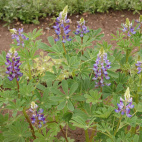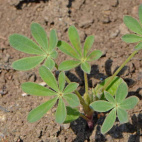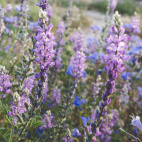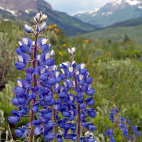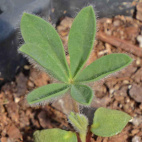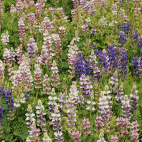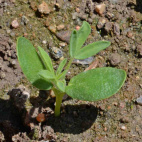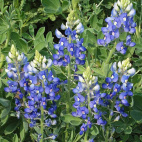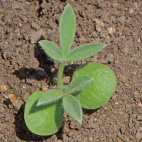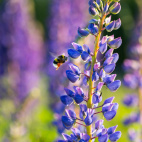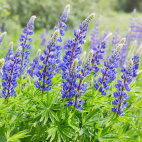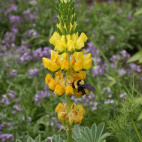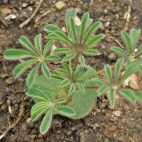Color
Availability
USDA Zone
Region
Type
Duration
Season
Germination
Soil
Sunlight
Height
Use
Narrow Your Search
Color
Availability
USDA Zone
Region
Type
Duration
Season
Germination
Soil
Sunlight
Height
Use
Wildflowers - Wild Lupine
-
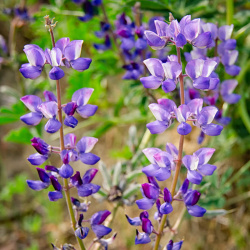 Arroyo Lupine Seeds
Lupinus succulentus
Though native to California, this lovely wildflower can be found throughout the American southwest. This annual grows quickly and is very easy to grow in the garden, no matter where you live.Quick Viewx
Arroyo Lupine Seeds
Lupinus succulentus
Though native to California, this lovely wildflower can be found throughout the American southwest. This annual grows quickly and is very easy to grow in the garden, no matter where you live.Quick ViewxArroyo Lupine Seeds
Lupinus succulentus
Though native to California, this lovely wildflower can be found throughout the American southwest. This annual grows quickly and is very easy to grow in the garden, no matter where you live.
$3.48 Pkt - $9.15 / Oz -
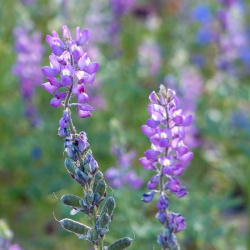 Out Of Stock
Mojave Lupine Seeds
Lupinus sparsiflorus
Native to the desert, this sand-loving beauty blooms in early spring. This annual is not as showy as some, but can grow with a lot less water, and is reasonably resistant to heat and drought, making it perfect for xeriscaping.Quick Viewx
Out Of Stock
Mojave Lupine Seeds
Lupinus sparsiflorus
Native to the desert, this sand-loving beauty blooms in early spring. This annual is not as showy as some, but can grow with a lot less water, and is reasonably resistant to heat and drought, making it perfect for xeriscaping.Quick ViewxMojave Lupine Seeds
Lupinus sparsiflorus
Native to the desert, this sand-loving beauty blooms in early spring. This annual is not as showy as some, but can grow with a lot less water, and is reasonably resistant to heat and drought, making it perfect for xeriscaping.
$3.25 Pkt - $22.17 / Oz -
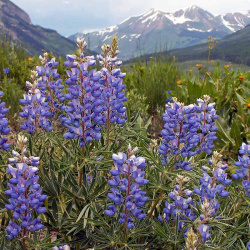 Mountain Lupine Seeds
Lupinus alpestris
True to its name, this violet-blue gem may be discovered high up in the mountains. Amazingly, you can actually grow this mountain beauty right in your home garden! Drought resistant and long-lived.Quick Viewx
Mountain Lupine Seeds
Lupinus alpestris
True to its name, this violet-blue gem may be discovered high up in the mountains. Amazingly, you can actually grow this mountain beauty right in your home garden! Drought resistant and long-lived.Quick ViewxMountain Lupine Seeds
Lupinus alpestris
True to its name, this violet-blue gem may be discovered high up in the mountains. Amazingly, you can actually grow this mountain beauty right in your home garden! Drought resistant and long-lived.
$3.96 Pkt - $26.00 / Oz -
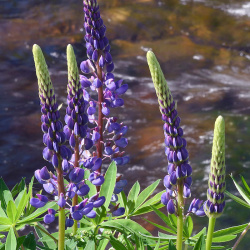 Riverbank Lupine Seeds
Lupinus rivularis
As suggested by its name, this sweet-scented lupine thrives on sandy or gravelly banks near water. This perennial is native to the Pacific Northwest but can be grown in many different regions of the country.Quick View$3.25 Pkt - $10.57 / Oz
Riverbank Lupine Seeds
Lupinus rivularis
As suggested by its name, this sweet-scented lupine thrives on sandy or gravelly banks near water. This perennial is native to the Pacific Northwest but can be grown in many different regions of the country.Quick View$3.25 Pkt - $10.57 / Oz -
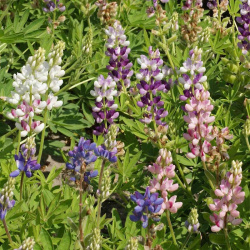 Sky Lupine Seeds
Lupinus nanus
This dwarf variety is a mixture of the various colors of Lupines found in the mountains and valleys of the West. These can be quickly grown as colorful annuals in gardens all over the country.Quick View$3.25 Pkt - $7.52 / Oz
Sky Lupine Seeds
Lupinus nanus
This dwarf variety is a mixture of the various colors of Lupines found in the mountains and valleys of the West. These can be quickly grown as colorful annuals in gardens all over the country.Quick View$3.25 Pkt - $7.52 / Oz -
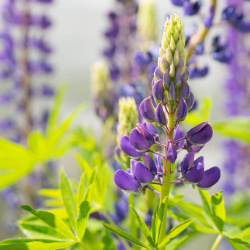 Out Of Stock
Small Lupine Seeds
Lupinus polycarpus
Small, but mighty, this short variety produces stunning blue-violet blossoms. This wildflower is a native of the Pacific Coast, but can easily be adapted as an annual to most garden conditions.Quick Viewx
Out Of Stock
Small Lupine Seeds
Lupinus polycarpus
Small, but mighty, this short variety produces stunning blue-violet blossoms. This wildflower is a native of the Pacific Coast, but can easily be adapted as an annual to most garden conditions.Quick ViewxSmall Lupine Seeds
Lupinus polycarpus
Small, but mighty, this short variety produces stunning blue-violet blossoms. This wildflower is a native of the Pacific Coast, but can easily be adapted as an annual to most garden conditions.
$3.48 Pkt - $12.65 / Oz -
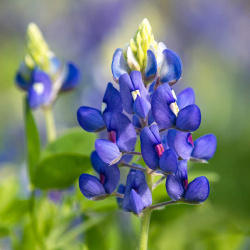 Texas Bluebonnet Seeds
Lupinus texensis
The Bluebonnet is a native wildflower of the deep south and holds the honor of being the State Flower of Texas. The blooms have the unique trait of changing colors as they age, which is why they sometimes look reddish and other times blueish.Quick View$3.48 Pkt - $11.88 / Oz
Texas Bluebonnet Seeds
Lupinus texensis
The Bluebonnet is a native wildflower of the deep south and holds the honor of being the State Flower of Texas. The blooms have the unique trait of changing colors as they age, which is why they sometimes look reddish and other times blueish.Quick View$3.48 Pkt - $11.88 / Oz -
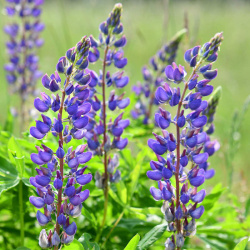 Wild Lupine Seeds
Lupinus perennis
This Lupine is more modest than some in the family but is a native wildflower that will not take over your garden. A primary food source for the Karner Blue Butterfly, this perennial is a popular choice for many native prairie plantings.Quick View$3.75 Pkt - $60.00 / Oz
Wild Lupine Seeds
Lupinus perennis
This Lupine is more modest than some in the family but is a native wildflower that will not take over your garden. A primary food source for the Karner Blue Butterfly, this perennial is a popular choice for many native prairie plantings.Quick View$3.75 Pkt - $60.00 / Oz -
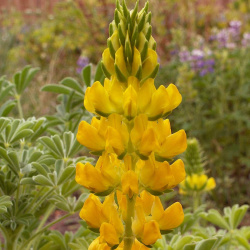 Yellow Lupine Seeds
Lupinus densiflorus
Discovered all along the Pacific Coast, this golden flower loves sunshine. There are dozens of types of native Lupines in this region, but this annual does not mind growing in gardens far from home. This annual is easy to grow and produces a pretty showy flower with minimal effort.Quick Viewx
Yellow Lupine Seeds
Lupinus densiflorus
Discovered all along the Pacific Coast, this golden flower loves sunshine. There are dozens of types of native Lupines in this region, but this annual does not mind growing in gardens far from home. This annual is easy to grow and produces a pretty showy flower with minimal effort.Quick ViewxYellow Lupine Seeds
Lupinus densiflorus
Discovered all along the Pacific Coast, this golden flower loves sunshine. There are dozens of types of native Lupines in this region, but this annual does not mind growing in gardens far from home. This annual is easy to grow and produces a pretty showy flower with minimal effort.
$3.48 Pkt - $8.70 / Oz







